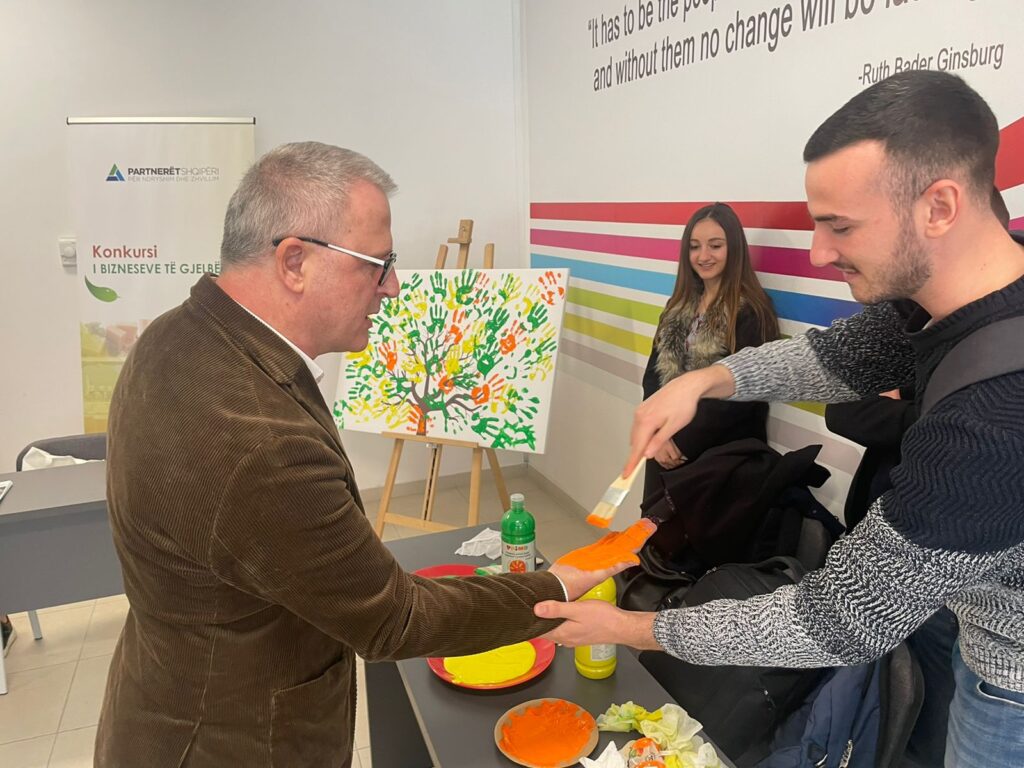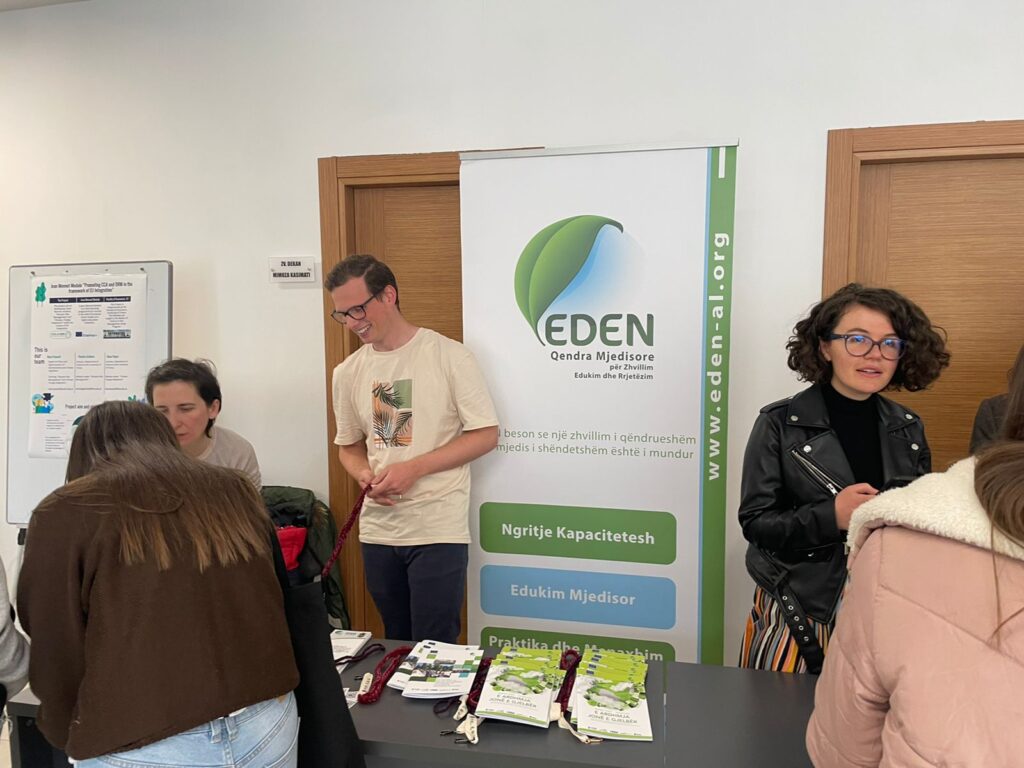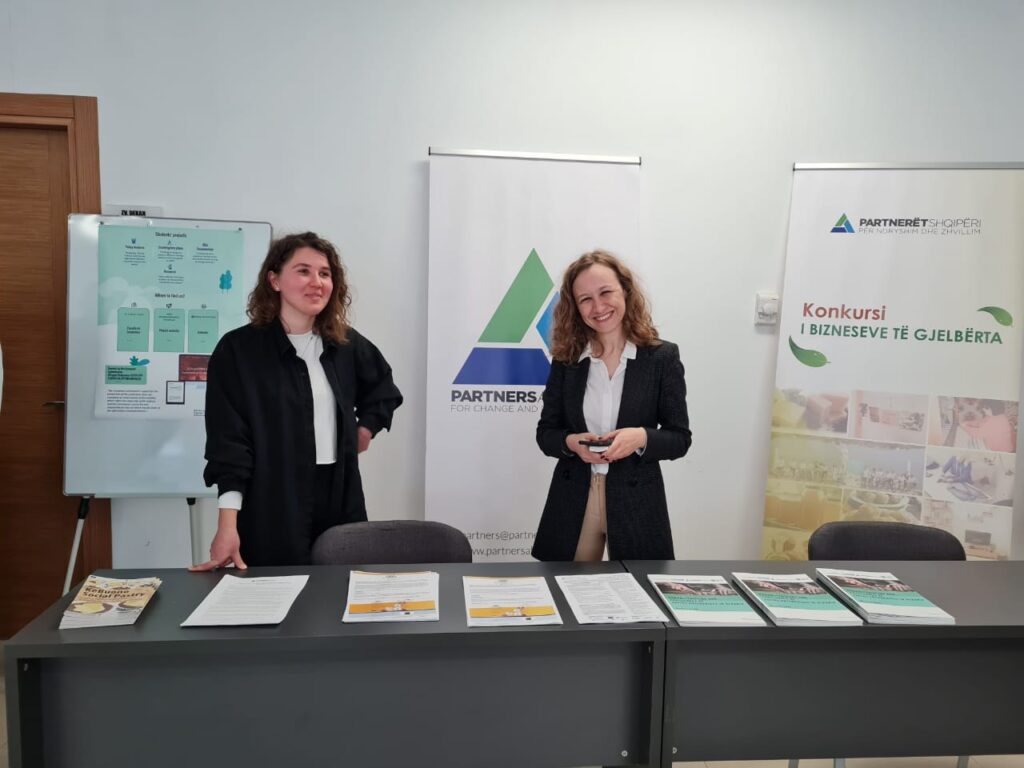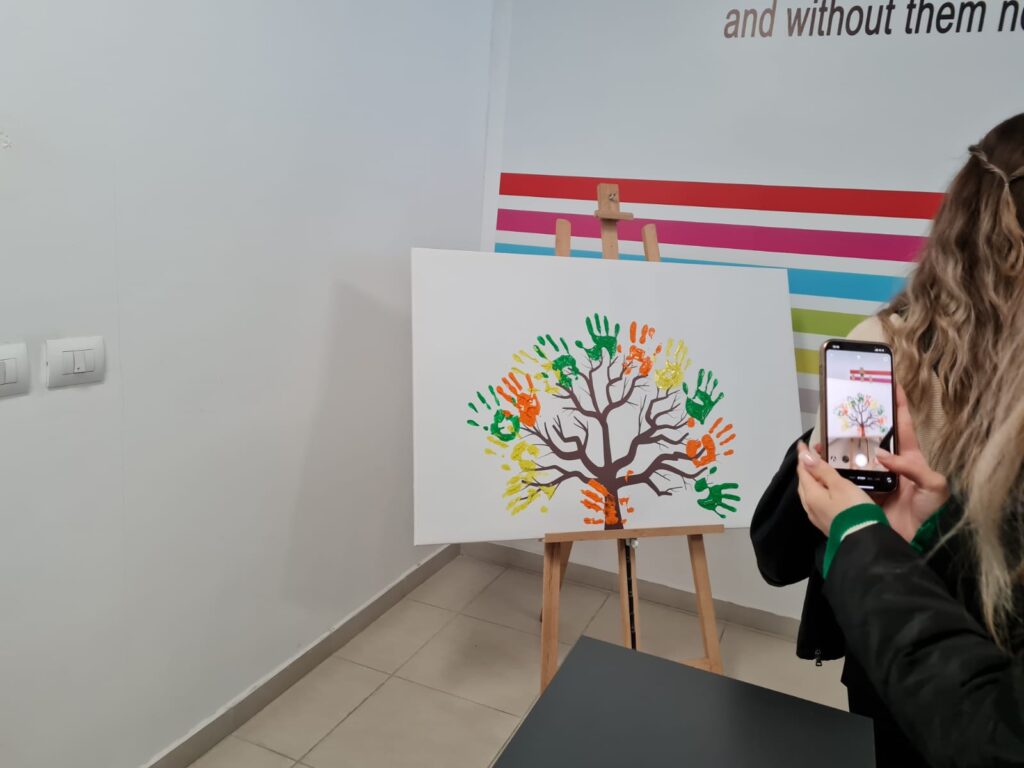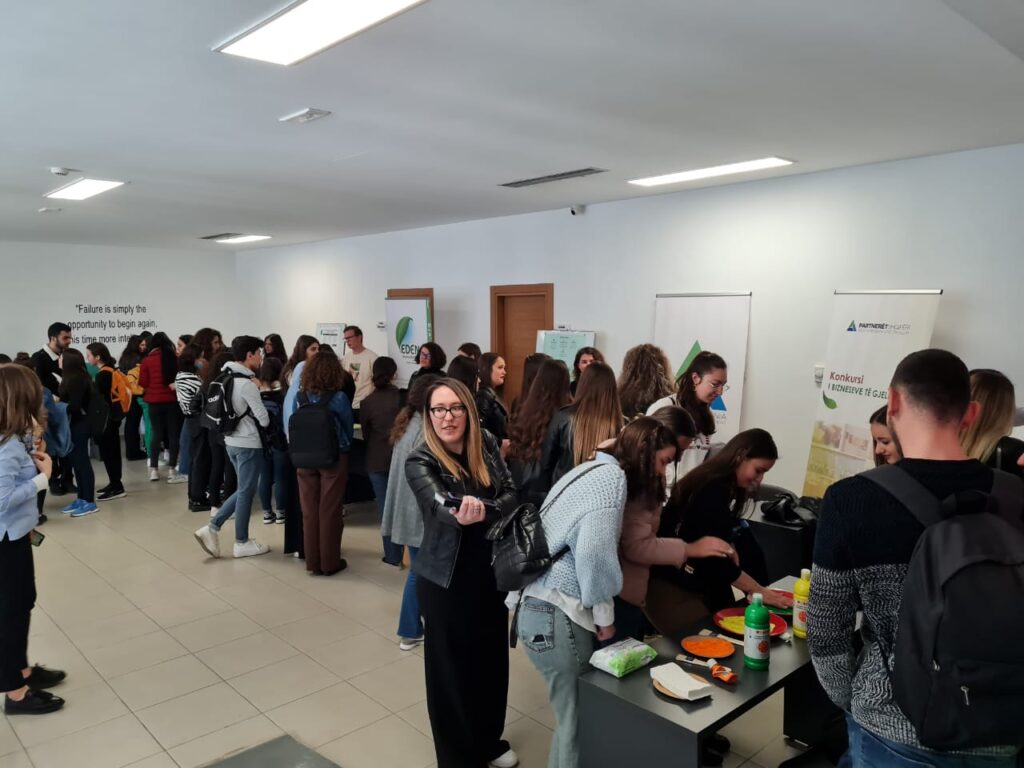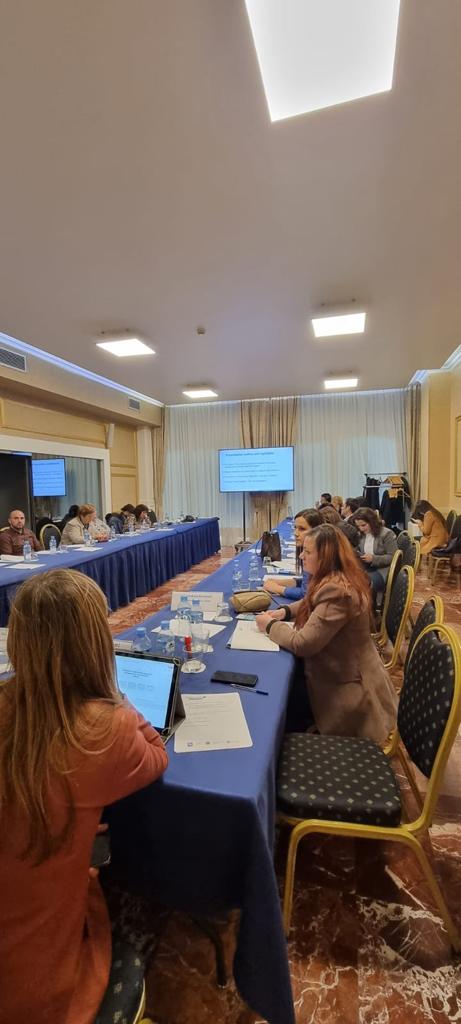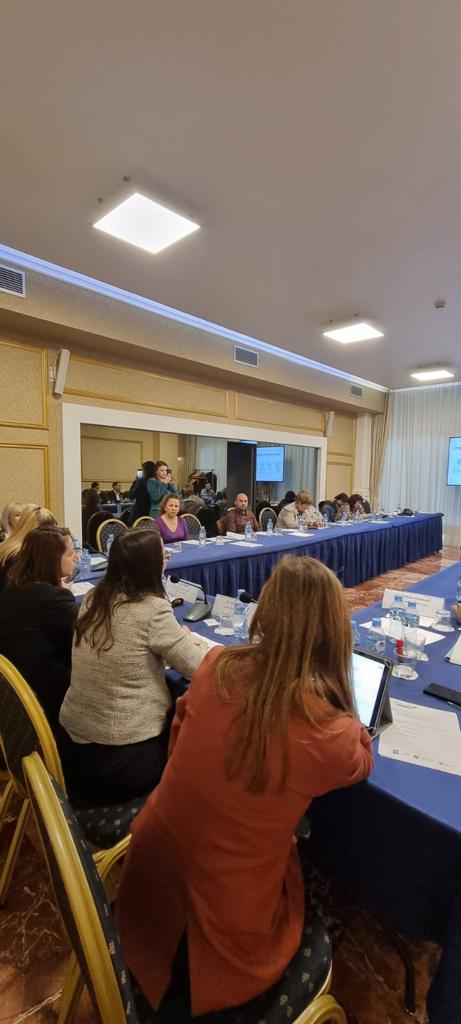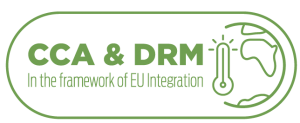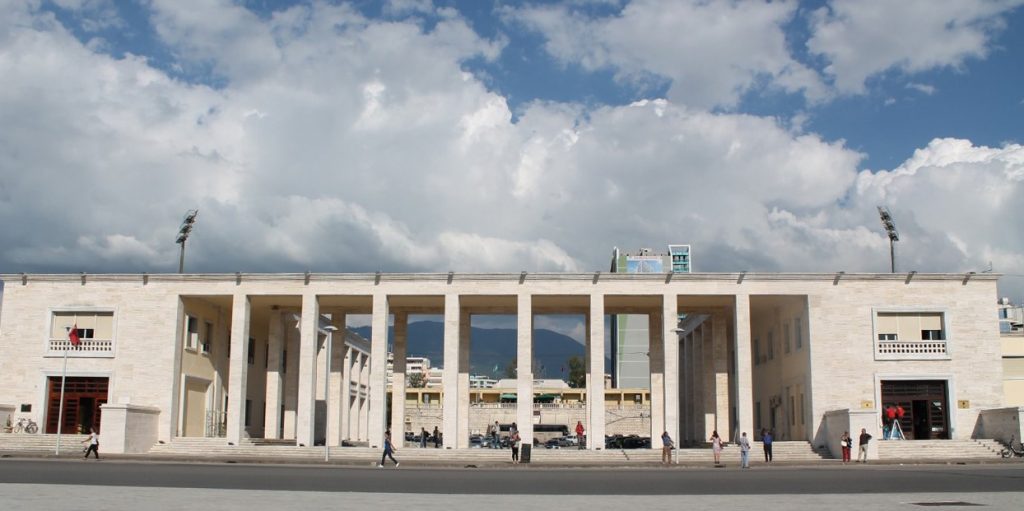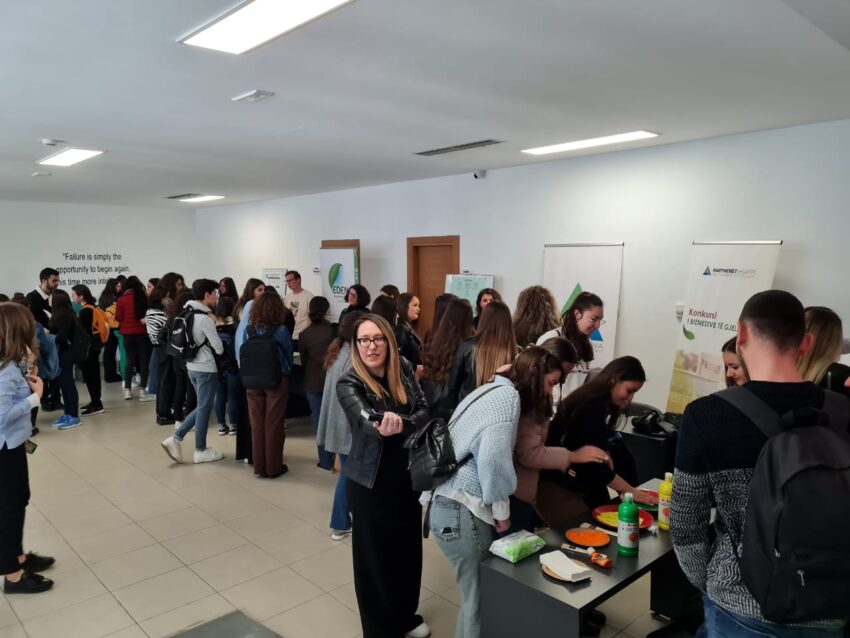The Roundtable on Environmental Management, Climate Change Adaptation (CCA), and Disaster Risk Management (DRM) Strategies, organized by the team behind the “Jean Monnet Module Climate Change Adaptation and Disaster Risk Management in the Framework of EU Integration,” organized on March 24, 2022, at the Faculty of Economics, University of Tirana. This event brought together experts, businesses, academics, and civil society to explore innovative approaches to climate resilience and environmental awareness.
The event began with a welcome and a presentation of the Jean Monnet Module Project “Climate Change Adaptation and Disaster Risk Management in the Framework of EU Integration” by Prof. Perseta Grabova. Prof. Grabova provided insights into the project’s goals and objectives, setting the stage for the discussions that followed. The opening session also featured a keynote speech by Perseta Grabova, addressing the advancement of climate change and disaster risk reduction strategies in the context of EU integration.
The second session focused on two critical aspects:
Innovation in Risk Management for Resilience: Moderated by representatives from, this segment explored cutting-edge approaches to risk management that contribute to climate resilience.
Implementation of Environmental Awareness in Businesses: Moderated by representatives from “Tirana Teknologji,” this section highlighted the integration of environmental awareness into business practices, emphasizing sustainability and environmental responsibility.
Leveraging Environmental Management for Business Advantage: AL-TEK sh.p.k. presented insights into how environmental management can be a strategic advantage for businesses.
The event highlighted the importance of aligning climate change adaptation and disaster risk management with the EU integration framework, emphasizing the region’s resilience against climate challenges.
Innovation in risk management and the integration of environmental awareness are key components of building climate resilience and fostering sustainable business practices.
The active participation of civil society, businesses, and students in the exhibition showcased a vibrant commitment to addressing climate change and promoting climate actions.
The Roundtable on Environmental Management, CCA, and DRM Strategies was a robust and inclusive multi-sectoral consultative mechanism to advance climate change and disaster risk reduction policies in Albania. It brought together a diverse range of stakeholders, including the private sector, government, academics, and civil society, to address pressing issues related to environmental management, CCA, and DRM.
The agenda included panel discussions on the following key questions:
Policies for CCA and DRM: Participants explored the policies implemented so far and their alignment with EU integration priorities and best practices.
Private Sector Risk Management: The private sector’s adoption of risk management principles and strategies was a focal point of discussion.
Innovation for Resilience: Participants delved into the private sector’s innovations in risk management for resilience.
Environmental Awareness and Business Strategy: The incorporation of environmental awareness into private sector business strategies and its potential as a tool for creating a competitive edge in the market were thoroughly examined.
The Roundtable on Environmental Management, CCA, and DRM Strategies was a resounding success, fostering collaboration between various stakeholders and inspiring innovative solutions for climate resilience. It was a significant step toward integrating climate adaptation and disaster risk management into the EU integration framework, furthering the region’s preparedness for climate challenges.
This event demonstrated that a collective effort from academia, businesses, and civil society can drive meaningful change and contribute to a more climate-resilient and sustainable future.
The session concluded with a Q&A session, allowing attendees to engage with the speakers, and closing remarks.
The event culminated in an exhibition demonstrating the active participation of civil society, businesses, and students committed to promoting climate action. The exhibition featured innovative solutions, community engagement, and a determination to address climate change. It served as an excellent opportunity for networking and knowledge sharing.
